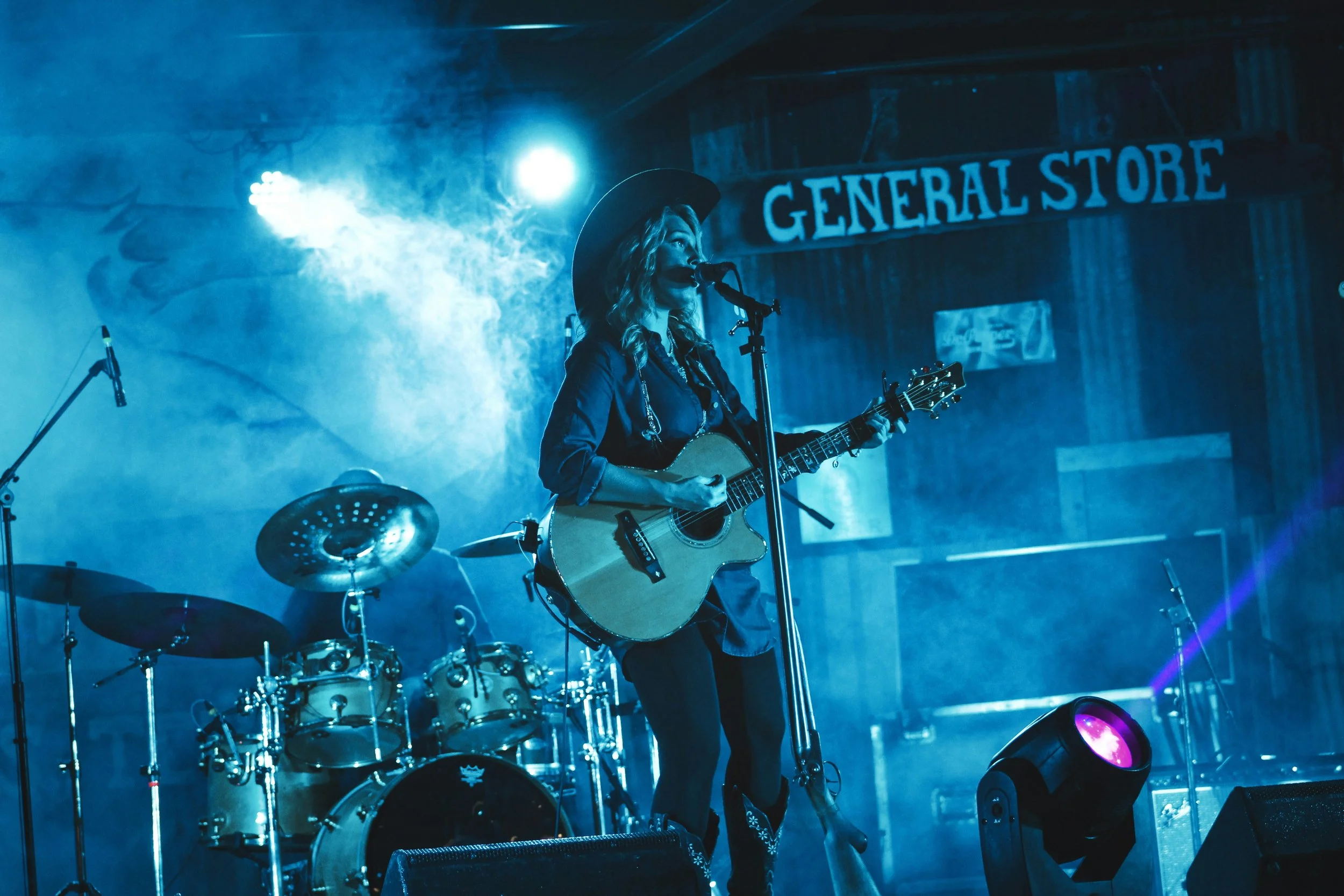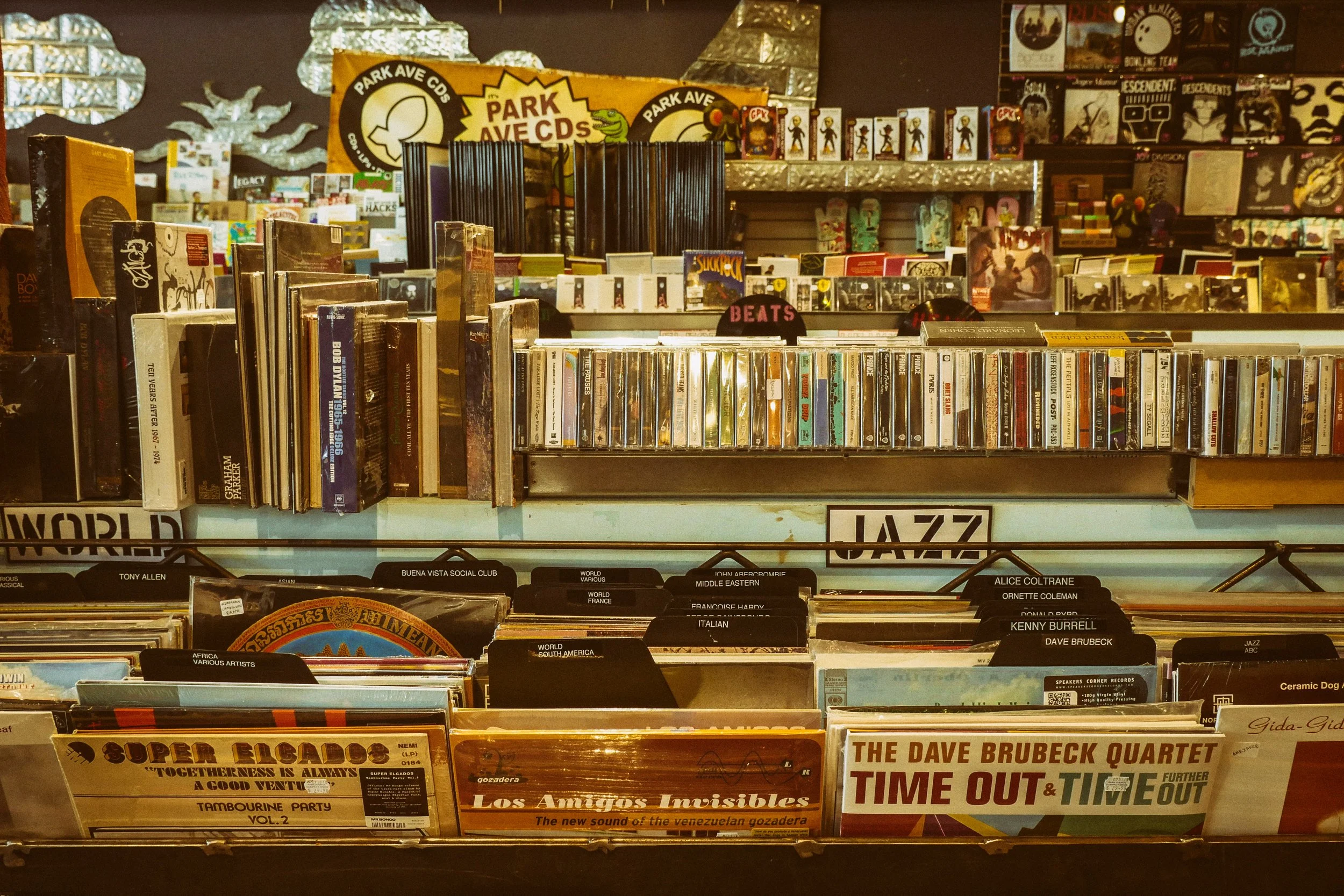
Articles
Songwriting & Music Industry Guidance

How to Write Lyrics That Connect: The Power of Specificity
If your lyrics sound meaningful but don’t quite connect, this is probably why. When I was 16, my brother gave me a mix tape of Sting and Police songs. That tape got me through a summer job scraping, washing, and painting the concrete walls of my dad’s basement. What I knew about lyric writing I learned from Sting, and as it turns out, Sting’s style of songwriting didn’t look as good on me as it did on him.

The Heart of Traditional Country
No style of songwriting is as dedicated to storytelling as country music, and specifically, traditional country. This style grew out of the blues, merged with folk, and is the bedrock of commercial country and singer-songwriter styles. Though some artists bring to the genre a strong harmonic backing or melodic interest, it really is a style built on three chords and the truth. Traditional country most often relies on lyric to make the song go.

What Defines the Singer-Songwriter Style, and How to Find Yourself Within It
I spend a lot of time talking about the differences between musical styles, not as categories to constrain us, but as lenses that help us better understand who we already are as writers. When we can recognize the characteristics of a style—especially the one we’re naturally drawn to—we gain clarity about why we sound the way we do, and how we might become even more ourselves.

Why Industry Has No Place in Sustainable Creative Expression
We often talk about creativity as if it only matters when it can be measured, shared, and preserved. But the truth is, sustainable creative expression doesn’t require industry, charts, or audiences. It requires only us, showing up with curiosity and letting what’s inside find its way out.

The Tendencies of Commercial Pop
Aiming to match any genre of music when we write is often a great way to kill a song. While genre can describe what is working within a group of sounds, chords, production, melody and lyric, it doesn’t tell us what makes an individual song, or artist, unique.

Think Like a Producer: A Guide to Keeping Your Song’s Soul Intact
One of the best things we can do to grow as songwriters is record our own songs. Now that doesn’t mean that we’re recording in isolation, playing all the parts, or even producing our own project. It means that recording completes the creative cycle of writing, recording, releasing, and sharing.

Simple is Timeless
From Einstein to Mozart, simplicity has always been a cornerstone of artistic expression. Songwriting is no exception. The songs we love for a lifetime are often simple in structure, utilizing just a few themes with plenty of repetition across lyric, rhythm, chords and melody.

10 Quick & Creative Songwriting Exercises
When we feel stuck in our songwriting routine, or lack thereof, there are some exercises we can do to get the inspiration flowing again. Think of these like lifting weights at the gym. Over time, they connect us with our instincts as they keep the stakes low, and ensure we don’t go too long without writing or creating something, regardless of whether we’ll use it in a song. Treat them as intentional, low-pressure experiments to spark fresh ideas and curiosity.

What’s Your Style?
We all have a songwriting style. Whether we recognize it or not, it’s woven into how we phrase a melody, the words and concepts we gravitate toward, and the harmonic choices we return to over and over again. Style extends beyond genre. You might write jazz one day and folk the next, but something about your musical fingerprint shows up in both.

5 Simple Steps for Writing Powerful Song Lyrics
Lyrics are often the most overwhelming element of a song to write. It’s where we spend the most time, tweaking for message, structure, and melodic alignment. In some music styles, it’s what drives the success of the song to connect with our listener.

9 Ways To Keep Writing Songs (Even When You Have No Time)
Rarely does anyone say, “I have too much time to write.” Most of us are just trying to do the best we can with the time we’ve got. And it usually doesn’t feel like enough.

Big Messages, Small Moments: How to Write Songs That Say Something Real
There are a few things in life we’re told to avoid at dinner with family, namely religion and politics. As it turns out, those same topics tend to trip up us songwriters, too.

What Makes a Song Memorable? A Conversation with AI
I’ve been thinking a lot about the value of music, and specifically, whether it has more or less value if AI makes it. Certainly there is inherent value in creating music, but when it comes to the effect it has on its listener, does intention matter? In my opinion, it does.

Death of a Giant
NPR recently published an article and podcast announcing the soft closure of the largest music festival in the world, South by Southwest, or SXSW, The festival will be drastically scaled back and rolled into next year‘s Film and Interactive Festival.

How to Write Lyrics Like Radiohead
I am always in awe of writers who get away with far-reaching concepts or highly metaphorical and abstract lyrics. While the lyrics of more acoustic and grounded artists like Kris Kristofferson or Johnny Cash leans more into reality, artists like Radiohead venture far into the abstract. Their music allows for strange and interesting concepts like alien landings and fake plastic trees.
When I want to encourage a little more abstraction in my own lyric, I look towards styles and songs with that kind of language to be my guide. This is where lot of rock, metal, electronic, and some pop sits. The character is conveying truth, but does it with loads of metaphor and no sense of specific time or place.

No Matter the Game, The Play Doesn't Change
Making it in the arts has always been difficult, but these days of the independent musician as business owner/CEO/COO/CFO/social media coordinator, booking agent, tour manager, and every other acronym just make the landscape even more demanding. But as complicated as it all seems, there is a simpler way to look at our aspirations as musicians to make music a long-term and regular part of our lives.

Becoming Yourself As An Artist
When we can identify where our unique skillset intersects with the genre that values most of those skillsets, we often see our songs soaring the highest.
So how do we find out what our own natural writing strengths are? We observe our older songs, we look at our influences, and we practice some exercises to see what clues they bring.

Build An Effective Writing Routine
Taking time to write on a regular basis is key to growing as a songwriter. But as important as reserving time to create, is using that time in ways that expand our understanding of our craft. Similar to practicing an instrument, some activities encourage growth more than others. We might be drawn to running the same section of a song that comes more easily to our fingers, avoiding the parts that don’t. Without addressing the tough parts, we find we bump up against the old limitations of our skillsets, never growing past them.

How to Write Songs with Killer Hooks
As a songwriter, I know that a hook is a powerful tool that can make my song unforgettable, but what exactly is a hook? And how do songwriters harness this musical and lyrical power?

Simple Tools for Better Melodies
Simply put, melody is rhythm plus pitch. The pitch tells us what note to sing, but the rhythm tells us when and how long to hold it. Many times we songwriters play with pitch while turning a blind ear to rhythm. But it is rhythm, I think, that produces a more definable melody than pitch alone.
